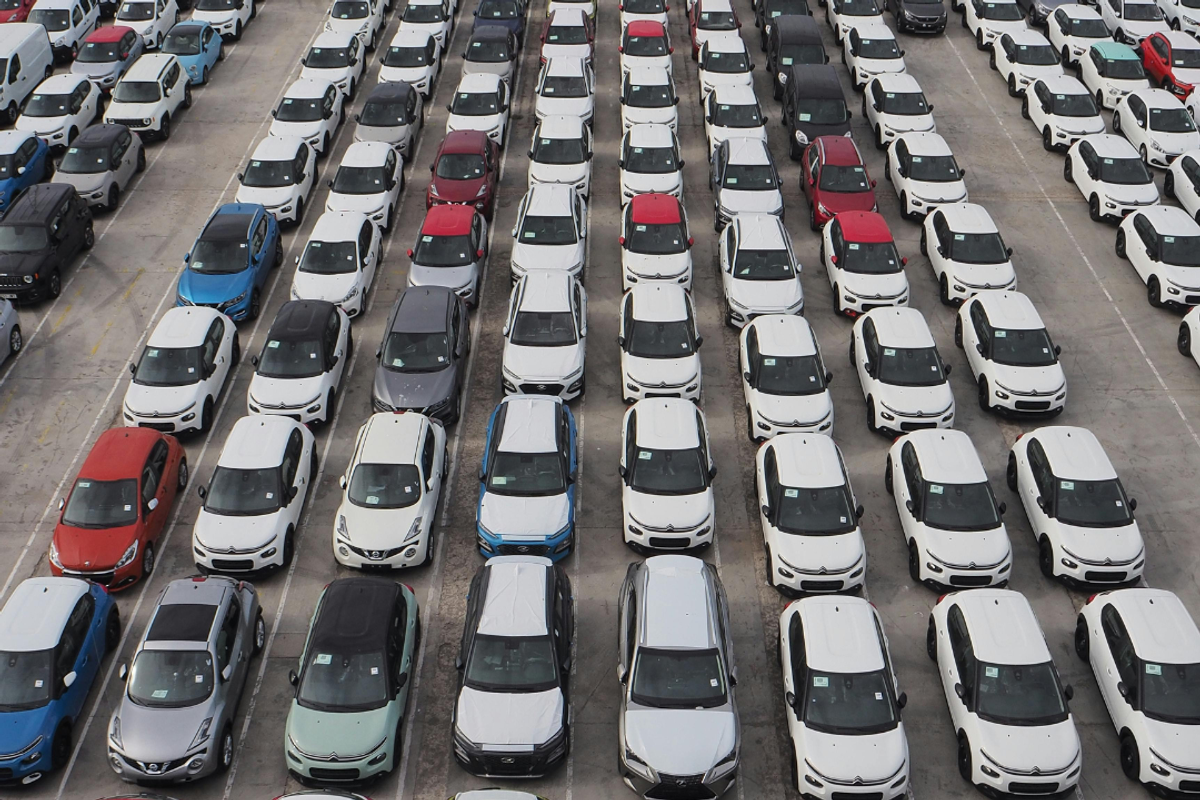Pakistan new car import policy ‘threat’ in long-term: report
Analysis by Institute of Cost and Management Accountants policy offers short-term benefits but will hurt local industry
Business Desk
The Business Desk tracks economic trends, market movements, and business developments, offering analysis of both local and global financial news.

Pakistan aims to cut regulatory duty on imported cars to zero by 2030
The Pakistan government’s decision to allow commercial imports of used vehicles will pose long-term challenges for the country’s auto industry, foreign exchange reserves, and macroeconomic stability, according to a new analysis by the Institute of Cost and Management Accountants of Pakistan (ICMA).
The policy, approved on September 24 and notified a week later, permits the commercial import of used vehicles up to five years old, starting with a 40% regulatory duty that will decline by 10 percentage points each year until it is phased out by FY2029–30.
ICMA said the policy offers short-term fiscal benefits – as the initial 40% duty would boost government revenues – expanded consumer choice, but in the long term, it will weaken Pakistan’s balance of payments and threaten the long-term viability of the domestic auto manufacturing ecosystem, which has long been protected by high tariffs and regulatory barriers.
“Previous liberalization efforts in the 2000s triggered industry resistance despite offering temporary consumer relief,” ICMA said. “The … decision marks a major turning point that could reshape the industry, consumer behavior, and Pakistan’s trade flows.”
Shifting consumer expectations; high prices
The analysis noted in the short term, vehicle prices are unlikely to fall significantly due to high duties, exchange rate volatility, and importer premiums.
Consumers' expectations are already evolving as they delay purchases in anticipation of more affordable and higher-quality imports, which often come with better safety and efficiency features, such as airbags, ABS, hybrid engines, and improved fuel economy, ICMA added.
As duties decrease annually, imported vehicles are expected to become increasingly competitive — particularly by FY2027-28, when the duty will fall to 20%.
This could make popular Japanese models, such as the Toyota Vitz, Honda Fit, and Suzuki Swift, more accessible to middle-income households and intensify competition in the small and mid-sized car segment.
Impact on local companies
By FY2029-30, when import duties are fully phased out, domestic assemblers will face full-scale global competition. ICMA warned that companies failing to modernize could lose market share or exit the market entirely. However, the report also highlighted opportunities for manufacturers that invest in new technologies, including hybrid and electric vehicles, as well as international partnerships.
The liberalization is also expected to influence consumer behavior, shifting focus from resale value — a dominant concern in Pakistan’s historically restricted market — toward quality, safety, and efficiency.
Beyond assemblers, the impact will be felt across Pakistan’s extensive vendor network, which supplies parts such as batteries, tires, and engines. A drop in local vehicle production could strain these small and medium enterprises, with some potentially unable to survive.
However, vendors that adapt by integrating with international supply chains or diversifying into EV parts and aftermarket services could discover new growth avenues. Employment in traditional assembly and vendor roles may decline, but new job opportunities could emerge in certification, inspection, logistics, and after-sales support for imported vehicles.
Infrastructure gaps
The Pakistan Automotive Manufacturers Association (PAMA) has expressed serious reservations over the decision.
In its feedback to ICMA, the association warned that without robust domestic testing facilities and transparent customs valuation, the influx of used vehicles could erode local completely knocked-down (CKD) operations.
The body also flagged risks related to after-sales service and spare parts availability, which could lead to a buildup of unserviceable or “junked” cars.
ICMA echoed these concerns, stressing the need for strict enforcement, reliable inspection systems, and policy support for local manufacturers during the transition.
Choices for lower-income buyers
Despite the promise of greater choice, ICMA noted that lower-income households are unlikely to benefit in the near term due to persistent affordability barriers, even with declining duties. The analysis also warned that increased vehicle imports could add pressure on Pakistan’s foreign exchange reserves and balance of payments over time, potentially offsetting short-term fiscal gains.
While the decision may offer immediate relief to consumers and boost government revenue, ICMA concluded that it presents significant long-term risks to local assemblers, the spare parts industry, and Pakistan’s economic stability.
“A carefully calibrated policy will be essential — one that safeguards external accounts, supports industry modernization, and ensures sustainable consumer benefits,” the report said.










Comments
See what people are discussing